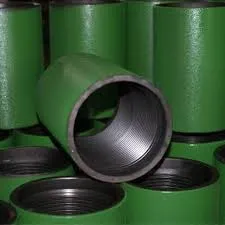- Afrikaans
- Albanian
- Amharic
- Arabic
- Armenian
- Azerbaijani
- Basque
- Belarusian
- Bengali
- Bosnian
- Bulgarian
- Catalan
- Cebuano
- Corsican
- Croatian
- Czech
- Danish
- Dutch
- English
- Esperanto
- Estonian
- Finnish
- French
- Frisian
- Galician
- Georgian
- German
- Greek
- Gujarati
- Haitian Creole
- hausa
- hawaiian
- Hebrew
- Hindi
- Miao
- Hungarian
- Icelandic
- igbo
- Indonesian
- irish
- Italian
- Japanese
- Javanese
- Kannada
- kazakh
- Khmer
- Rwandese
- Korean
- Kurdish
- Kyrgyz
- Lao
- Latin
- Latvian
- Lithuanian
- Luxembourgish
- Macedonian
- Malgashi
- Malay
- Malayalam
- Maltese
- Maori
- Marathi
- Mongolian
- Myanmar
- Nepali
- Norwegian
- Norwegian
- Occitan
- Pashto
- Persian
- Polish
- Portuguese
- Punjabi
- Romanian
- Russian
- Samoan
- Scottish Gaelic
- Serbian
- Sesotho
- Shona
- Sindhi
- Sinhala
- Slovak
- Slovenian
- Somali
- Spanish
- Sundanese
- Swahili
- Swedish
- Tagalog
- Tajik
- Tamil
- Tatar
- Telugu
- Thai
- Turkish
- Turkmen
- Ukrainian
- Urdu
- Uighur
- Uzbek
- Vietnamese
- Welsh
- Bantu
- Yiddish
- Yoruba
- Zulu
Optimizing Production Efficiency in Modern Pipe Manufacturing Processes
The Pipe Mill A Crucial Component in Modern Manufacturing
In the modern manufacturing sector, the pipe mill has emerged as a critical player in the production of various types of pipes used across numerous industries. From construction and energy to automotive and telecommunications, the versatility and efficiency of pipe mills enable the production of pipes that meet a wide range of specifications and standards. This article delves into the operation, significance, and advancements in pipe mills, showcasing their role in today's industrial landscape.
Understanding the Pipe Mill Process
At its core, a pipe mill is a manufacturing facility that specializes in the production of pipes from raw materials, predominantly steel and plastic. The process typically begins with the preparation of the raw material, which is usually in the form of steel strips or coils. These raw materials are fed into a series of machines designed to form, weld, and finish the pipes.
The pipe manufacturing process encompasses several stages, including decoiling, forming, welding, and finishing. Decoiling is the initial stage where steel coils are unwound and straightened. Next, the material undergoes forming, which involves passing it through rollers to achieve the desired shape, often a circular cross-section. Welding follows, where the edges of the formed strip are fused together using various techniques, such as high-frequency induction welding or submerged arc welding. Finally, finishing processes like cutting, galvanizing, or coating are employed to ensure the pipes are durable and ready for use.
Importance of Pipe Mills
Pipe mills play an essential role in various sectors of the economy. In the construction industry, for instance, they supply pipes used in plumbing, heating, and structural applications. In the energy sector, they manufacture pipes that transport oil, gas, and other fluids over long distances. The telecommunications industry relies on pipes to house fiber-optic cables and other communication lines.
pipe mill

Moreover, the importance of pipe mills extends to their contribution to infrastructure development. High-quality pipes are vital for water supply systems, sewage disposal, and irrigation systems, all of which are the backbone of urban planning and resource management. As populations grow and urbanization progresses, the demand for effectively produced pipes continues to rise.
Advancements in Pipe Mill Technology
The evolution of technology has significantly transformed pipe mills, enhancing their efficiency and output quality. Automation and robotics are increasingly being integrated into pipe mill operations, reducing labor costs and minimizing human error. Automated systems allow for precise control over the manufacturing process, resulting in consistent product quality.
Additionally, advancements in materials science have led to the development of stronger and more corrosion-resistant materials, enabling the production of pipes that can withstand extreme conditions. The use of computer-aided design (CAD) software and simulation tools also allows manufacturers to optimize designs and streamline production processes.
Sustainability has become a focal point in modern pipe manufacturing, with many mills adopting eco-friendly practices. From recycling scrap materials to implementing energy-efficient processes, the industry is progressively moving towards greener manufacturing techniques. This shift not only reduces environmental impact but also aligns with global efforts to promote sustainable development.
Conclusion
In conclusion, the pipe mill is a vital component of the manufacturing ecosystem, significantly impacting various industries and infrastructure across the globe. With ongoing technological advancements and a focus on sustainability, pipe mills are poised to meet the growing demands of modern society. As we look to the future, the continuous evolution of pipe mill technology will undoubtedly play a crucial role in shaping the way we manufacture and utilize pipes in our daily lives. Whether in the construction of skyscrapers or the laying of pipelines for essential resources, pipe mills remain indispensable to our industrial progress.
-
Tubing Pup Joints: Essential Components for Oil and Gas OperationsNewsJul.10,2025
-
Pup Joints: Essential Components for Reliable Drilling OperationsNewsJul.10,2025
-
Pipe Couplings: Connecting Your World EfficientlyNewsJul.10,2025
-
Mastering Oilfield Operations with Quality Tubing and CasingNewsJul.10,2025
-
High-Quality Casing Couplings for Every NeedNewsJul.10,2025
-
Boost Your Drilling Efficiency with Premium Crossover Tools & Seating NipplesNewsJul.10,2025







